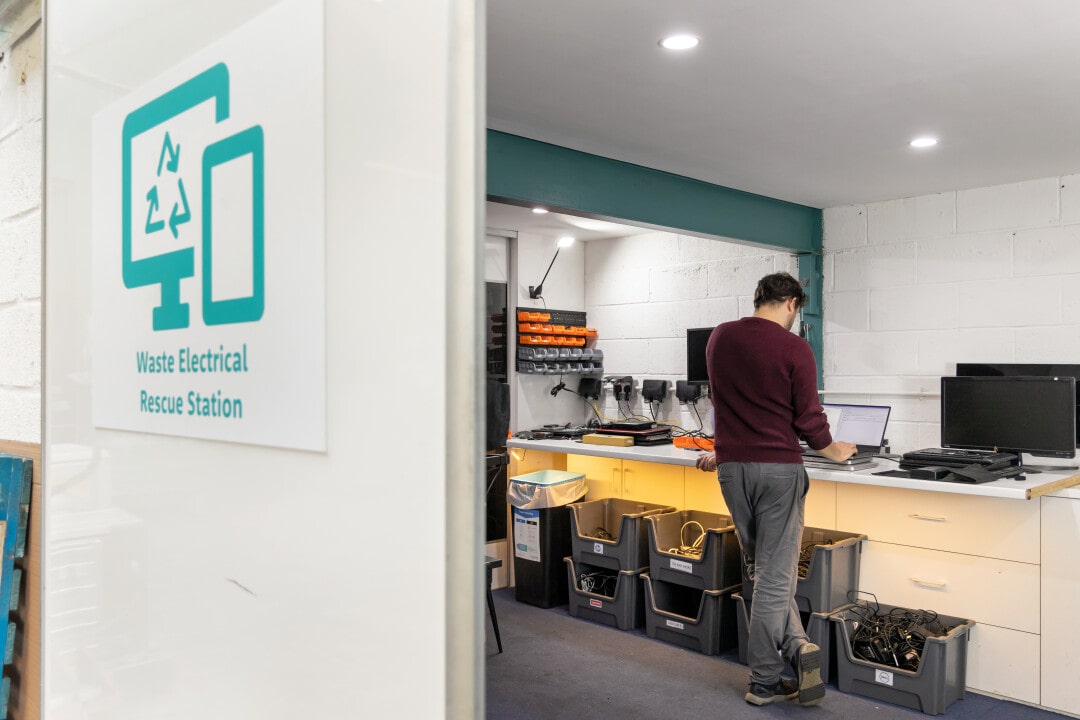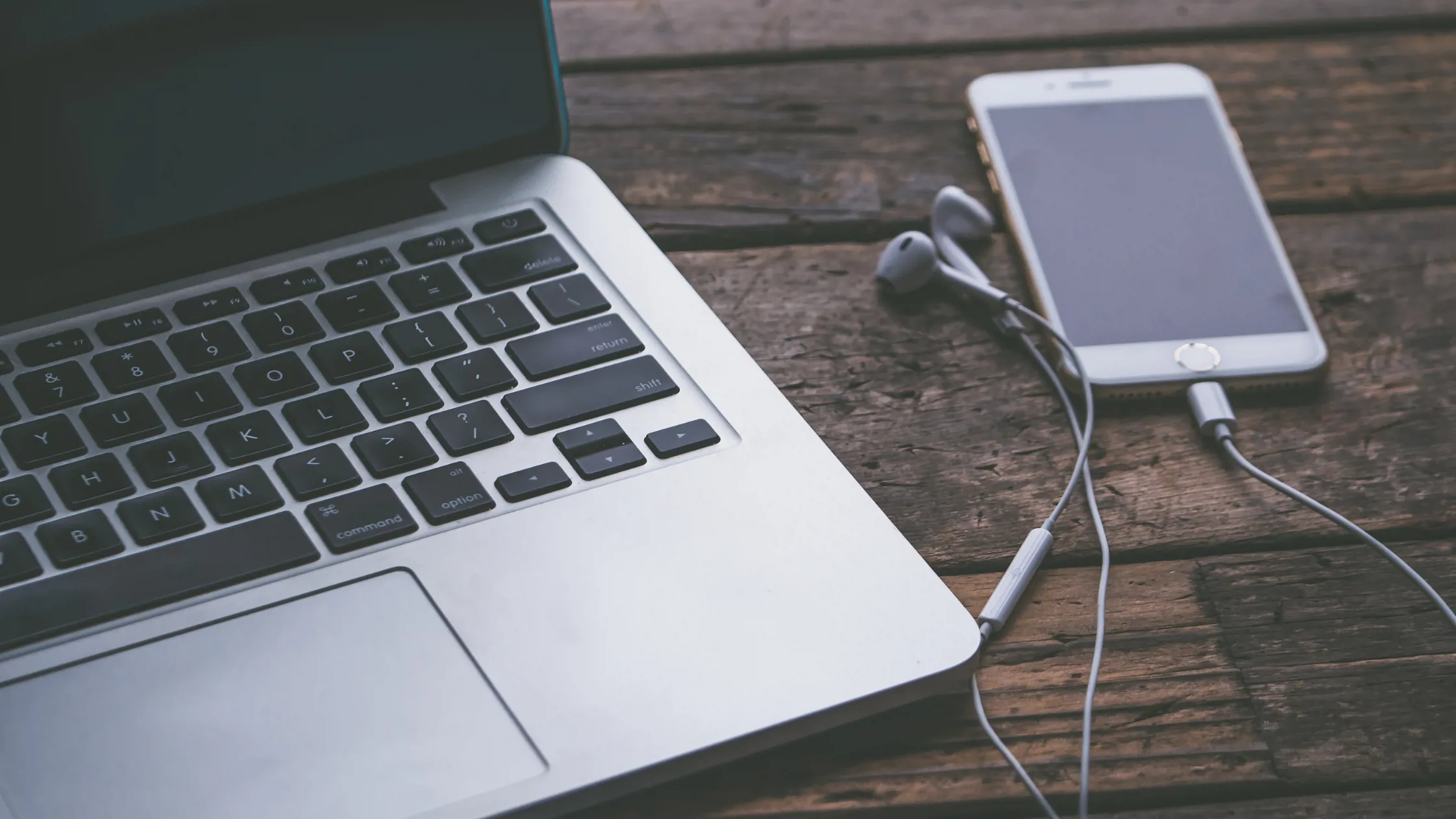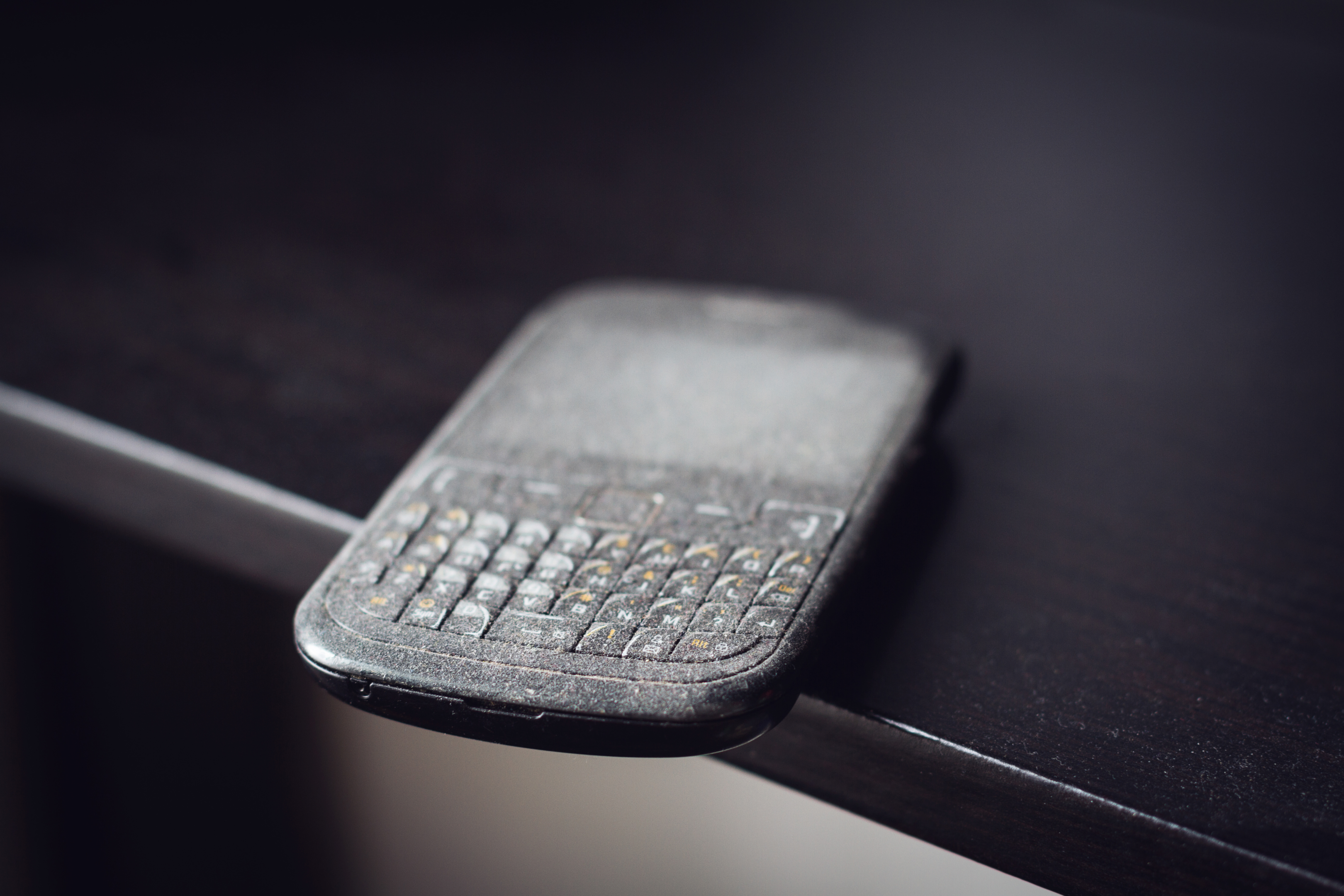Own a business but don’t know how to dispose of electronics lying around in your backroom? Don’t worry, we’ve got you covered.
For those who might have seen the term but don’t know what the letters mean, WEEE stands for Waste Electronic and Electrical Equipment.
That means mobile phones, laptops, computers, their keyboards, fridges, vacuum cleaners, washing machines, game consoles, tumble dryers and kettles all fall under this bracket.
Basically, anything with electronic components that requires a plug or a battery to power it (cables included) needs somewhere to go when it’s time to get rid of it or replace it.
However, discarding electrical items is not as simple as throwing them in the bin.
Many electronic equipment and appliances can cause serious health threats if they aren’t properly disposed of as they contain chemicals and substances that, if thrown into landfills, risk polluting the environment around them.
Why is E-Waste a problem?
-
In 2021, 57.4 million metric tonnes of e-waste (electronic waste) was generated around the world. This is a new record.
-
The Global E-Waste Monitor predicts that by 2030, e-waste will reach 74 million metric tonnes.
-
Every tonne of WEEE waste is responsible for emitting around 2 tonnes of CO2
-
E-waste generation releases toxic substances including mercury, a chemical that is proven to damage the human brain and nervous system.
-
In 2021, only around 20% of unwanted electricals were documented as being collected and recycled.
Therefore, recycling electronic equipment will not only give you peace of mind, but it'll save dangerous chemicals from damaging the environment and the people who live in it. Oh, and they can be made into new materials and products. It's a no-brainer!
Can you put electrical items in the recycle bin?
No. This is because most old electronics contain precious metals and toxic chemicals cased within the metal, including lithium-ion & cathode ray tubes, as well as other materials making recycling electronic goods difficult.
To recycle these, a specialist stream is needed.
Check with local authorities for your nearest recycling centre is or use a company like First Mile to deal with your waste.
We offer a dedicated recycling service for electronic equipment that either gives old tech a new lease of life or recycles and disposes of it safely, ensuring nothing goes to landfill.
Is it illegal to throw away electronics?
Under the Waste Electric and Electronic Equipment (2013) Regulations, businesses have a responsibility to recycle their unwanted electronics.
With offices, shops and warehouses constantly replacing and upgrading their technology and appliances, it's not good enough to simply throw your e-waste into landfill.
It’s also true that, in the UK, you could be fined (or even prosecuted) if you don't dispose of your electronic waste properly and fail to comply with the above regulations.
Therefore, if you're a business owner or you're responsible for dealing with the waste that your company produces, then it's time to put all this into practice.
By making an active effort to recycle your old equipment, you won't just be doing your part for the environment, but you'll be setting a good example to your employees and your fellow business associates.
You can also implement a clear and easy recycling system that signposts where and how your employees should discard their old equipment.
We have lots of useful resources such as guides and posters that you can pin up in your workplace that'll keep recycling at the forefront of your employee's minds.
How to dispose of E-Waste properly
We understand that all of this can feel overwhelming, which is why we make it as easy as possible for you.
Properly disposing of electronics involves making choices that align with environmental sustainability, as well as a multi-step process that aims to recover valuable materials and prevent hazardous substances from harming the environment.
It’s a fool-proof system that ensures as much of your waste is reused and repurposed. Plus, if your old electronics still have value, we'll give you cash for it.
So, rather than dismantling devices haphazardly, which risks damaging components that could otherwise be reused, consider using First Mile to dispose of your electronics.
The benefits of doing this are twofold: safeguarding your data and minimising your carbon footprint.
For example, every laptop or computer that is responsibly reused can save up to 36 cubic meters of water and reduce CO2 emissions by 40 kilograms.
As for safeguarding your data, at First Mile, we prioritise security, ensuring data privacy while facilitating the recycling process.
Our secure environment guarantees that your sensitive information remains tamperproof throughout the data-wiping process. This method not only offers peace of mind but also aligns with environmentally friendly practices.
Where should I recycle electronics?
With First Mile, of course!
Once you’ve chosen our specialist service to get rid of your electronic waste, we'll send one of our drivers to collect your unwanted or broken electronic devices for free.

We'll pick up the following items:
- Small electricals
- Large electricals
- Wires, cables and plugs
- IT and telecommunications equipment
- Laptops
- Keyboards
- Computers
- Mobile phones
- Washer dryers
For other office products, we have dedicated streams for printer toners and cartridges, fluorescent tubes or batteries.
We also offer plenty of other business recycling services if you produce a variety of waste streams you need handling.




